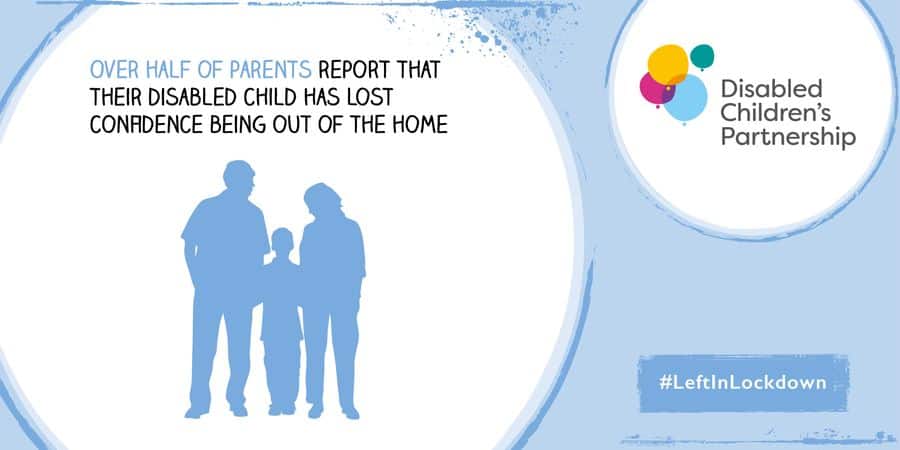Survey reveals mental health impact of COVID-19 on disabled children and their families
Today, new research from the Disabled Children’s Partnership has shown that disabled children, their siblings, and parents are all experiencing extremely high levels of social isolation in comparison to the rest of the population.
According to The Loneliest Lockdown report, 60 per cent of disabled children have been severely socially isolated during the last month, with two in five parents reporting that their child has lost confidence interacting with even familiar people, like friends and family.
Many disabled children have also lost confidence in performing vital everyday tasks. The research by the Disabled Children’s Partnership (DCP) showed that half of parents have reported that their disabled child has lost confidence in being outside their home and communicating with others.
Worryingly, nearly two in five parents, also reported that their child had lost confidence interacting with even familiar people, like friends, family and carers.
The disruption of schools opening then closing – and the lack of access at home to the specialist educational resources that disabled children need at home – has meant that many disabled students will need to relearn many of these skills from scratch, the report revealed.
The impact on families and siblings has also been catastrophic. Its research also showed that three in five parents of disabled children are socially isolated – as are half of siblings.
On average six out of ten parents reported that they were observing symptoms associated with anxiety. The survey found that 72 per cent of parents observed that their child is often unhappy, downhearted or tearful. Their siblings are also affected with a high proportion of parents reporting that their other children are having negative issues regarding sleep and anxiety.
Its spokesperson said: “As we come out of lockdown, the Government has a vital opportunity to implement policies that can make up for the disproportionate impact that disabled children and their families have felt during the pandemic.
“We are therefore backing calls for a COVID-19 recovery plan to support exhausted and isolated families as we lockdown, and to help make up for a year of lost progress.
“We need a holistic COVID-19 recovery plan that provides support for burnt out families, and makes up for the absence of therapies which had impacted on their physical development and opportunities to develop vital life skills.”



